Dihydrocodeine 30mg Tablets (Pain Pills)
£110.00
Dihydrocodeine As Pain Pills
Dihydrocodeine is a prescription-based opioid medication. It has some similarities in structure with codeine, but it is more effective than codeine. It acts as a potent pain killer(pain pills)
Dihydrocodeine is available in different formulations, including tablets, capsules, and injections. It is usually prescribed for short-term pain management of chronic pain. In addition, it is viable in different potencies, especially in 30mg. Your doctor or healthcare practitioner can prescribe the proper dose according to the severity of the pain.
Uses Of Dihydrocodeine (Pain Pills)
Dihydrocodeine works by binding to opioid receptors in the brain and spinal cord. In this way, it affects the perception of pain.
Dihydrocodeine is used for the management of different types of pain, including:
Postoperative Pain
Postoperative pain is experienced after a surgical procedure, usually due to tissue damage. It is the normal part of the healing procedure. Doctors prescribe different analgesics and painkillers to relieve this pain. Dihydrocodeine 30mg relieves pain after different surgical procedures, including dental surgery, orthopedic surgery, and gyne surgery. Most surgeons recommend it due to its fast, pain-relieving properties.
Chronic Pain
Chronic pain has no cure. What you can do is pain management. Chronic pain conditions vary from person to person. Dihydrocodeine 30mg is effective in relieving chronic pain in joints due to arthritis. Furthermore, it is effective in other chronic pain also.
Neuropathic Pain
It may be used for the management of neuropathic pain. Neuropathic Pain is also hard to manage because it’s due to damage to the nervous system. Such pain is moderate to severe intensity.
Acute Pain
Sometimes you may feel acute pain due to injury or for any other reason than Dihydrocodeine 30 mg works.
Advantages Of Dihydrocodeine Over Traditional Painkillers
Dihydrocodeine has several advantages. Some are mentioned below.
Effective Pain Relief
Several painkillers are on the market, but Dihydrocodeine is a potent painkiller. It can provide effective relief in moderate to severe pain.
Precautions
It is very important that your doctor check your or your child’s progress while using this medicine, especially within the first 24 to 72 hours of treatment. This will allow your doctor to see if the medicine is working properly and to decide if you should continue to use it. Blood and urine tests may be needed to check for unwanted effects.
Do not use this medicine if you are using or have used an MAO inhibitor (MAOI) such as isocarboxazid [Marplan®], linezolid [Zyvox®], phenelzine [Nardil®], selegiline [Eldepryl®], tranylcypromine [Parnate®]) within the past 14 days.
Check with your doctor before taking any of these medicines while you are using this medicine. The use of alcohol or other medicines that affect the CNS with codeine may worsen the side effects of this medicine, such as dizziness, poor concentration, drowsiness, unusual dreams, and trouble with sleeping. Some examples of CNS depressants are antihistamines or medicine for hay fever, allergies, or colds, sedatives, tranquilizers, or sleeping medicines, prescription pain medicine or narcotics, medicine for attention deficit and hyperactivity disorder, medicine for seizures or barbiturates, muscle relaxants, or anesthetics (numbing medicines), including some dental anesthetics. This effect may last for a few days after you stop taking this medicine.
This medicine may be habit-forming. If you feel that the medicine is not working as well, do not use more than your prescribed dose. Call your doctor for instructions.
This medicine may cause sleep-related breathing problems (eg, sleep apnea, sleep-related hypoxemia). Your doctor may decrease your dose if you have sleep apnea (stop breathing for short periods during sleep) while using this medicine.
Excretion: Approximately 90% of codeine is excreted by the kidney, of which approximately 10% is unchanged. The t½ of codeine and its metabolites is about 3 hours.
| Select Pills | 50 pills |
|---|

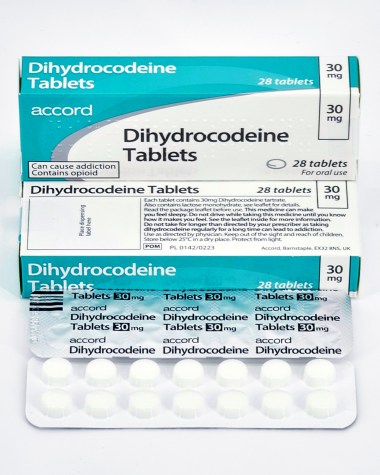
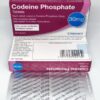

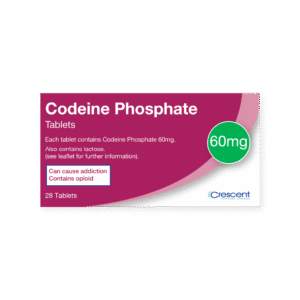

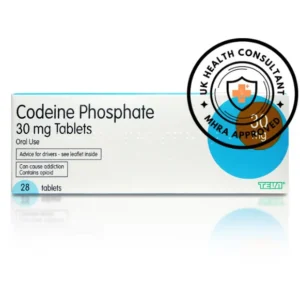
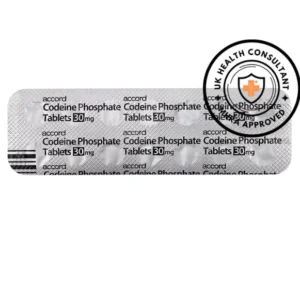

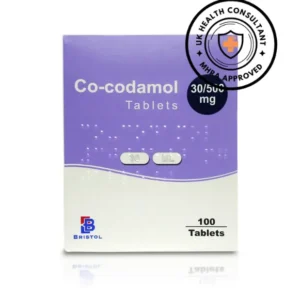
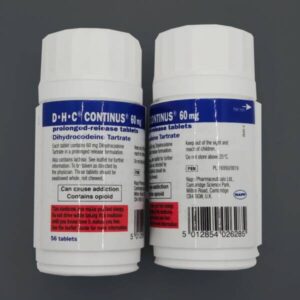

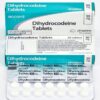
Reviews
There are no reviews yet.